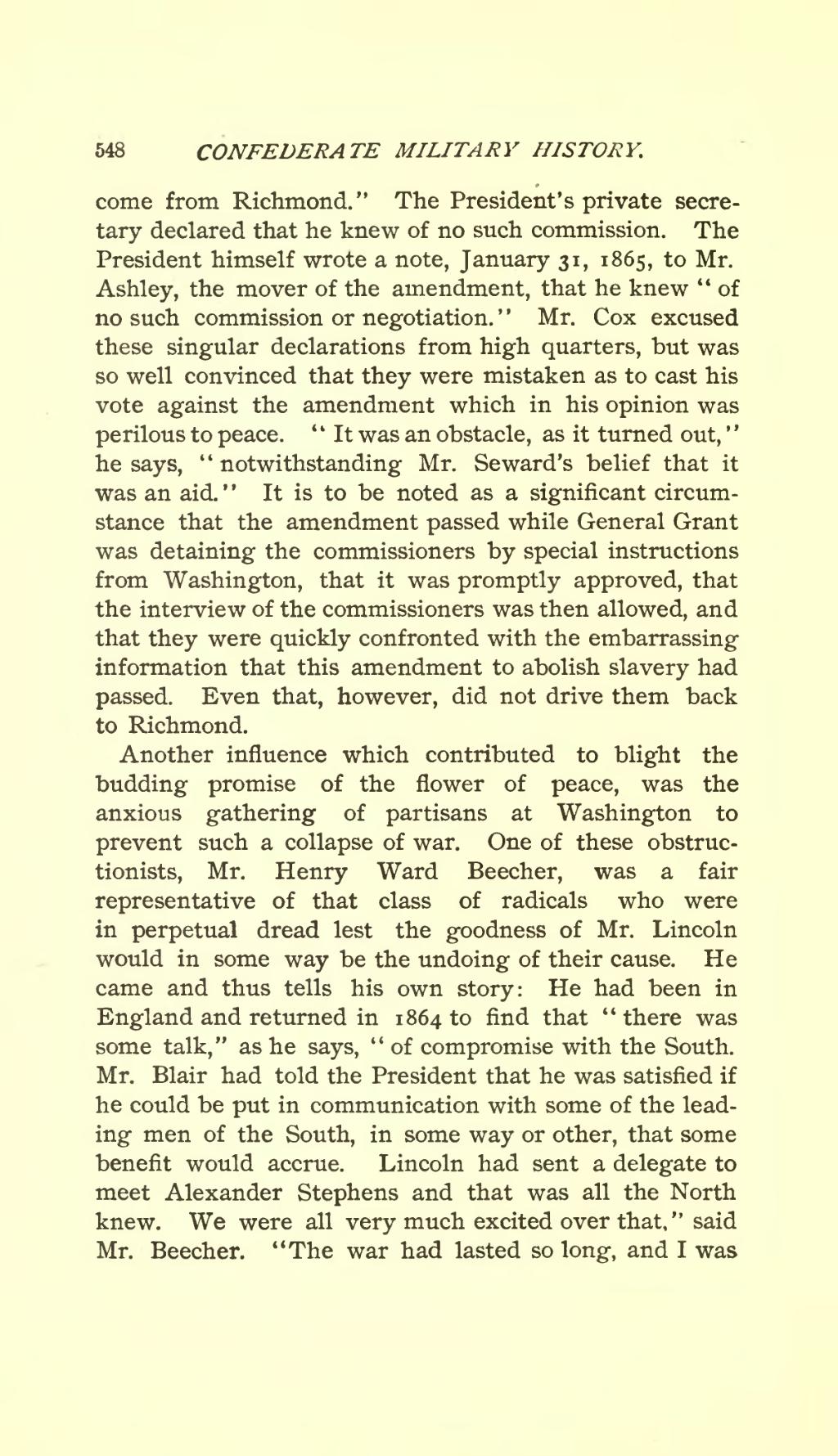come from Richmond." The President s private secretary declared that he knew of no such commission. The President himself wrote a note, January 31, 1865, to Mr. Ashley, the mover of the amendment, that he knew "of no such commission or negotiation. Mr. Cox excused these singular declarations from high quarters, but was so well convinced that they were mistaken as to cast his vote against the amendment which in his opinion was perilous to peace. 4i It was an obstacle, as it turned out," he says, "notwithstanding Mr. Se ward s belief that it was an aid." It is to be noted as a significant circumstance that the amendment passed while General Grant was detaining the commissioners by special instructions from Washington, that it was promptly approved, that the interview of the commissioners was then allowed, and that they were quickly confronted with the embarrassing information that this amendment to abolish slavery had passed. Even that, however, did not drive them back to Richmond.
Another influence which contributed to blight the budding promise of the flower of peace, was the anxious gathering of partisans at Washington to prevent such a collapse of war. One of these obstructionists, Mr. Henry Ward Beecher, was a fair representative of that class of radicals who were in perpetual dread lest the goodness of Mr. Lincoln would in some way be the undoing of their cause. He came and thus tells his own story: He had been in England and returned in 1864 to find that ** there was some talk," as he says, " of compromise with the South. Mr. Blair had told the President that he was satisfied if he could be put in communication with some of the leading men of the South, in some way or other, that some benefit would accrue. Lincoln had sent a delegate to meet Alexander Stephens and that was all the North knew. We were all very much excited over that," said Mr. Beecher. "The war had lasted so long, and I was
